Center for Vascular Biology Research Governance
About Our Governance
In the fall of 2015, the CVBR adopted a leadership structure that reflects its multidisciplinary and interdepartmental mission. Dr. Gyongyi Szabo, Chief Academic Officer for the BIDMC and Dr. Elliot Chaikof, Surgeon-in-Chief and Chair of the Roberta and Stephen R. Weiner Department of Surgery at the BIDMC joined the existing members, Drs. Saffitz, Wolfe and Zeidel, on the Executive Committee. The Executive Committee provides long-term and overarching guidance and strategic planning to the CVBR faculty to achieve the shared vision. Faculty members from each department serve on the Steering Committee, which works closely with the Executive Committee to oversee all of the center's academic activities, faculty recruitment and day-to-day operations.
Executive Committee
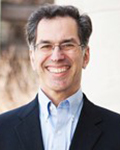 Elliot L. Chaikof, MD, PhD, is Surgeon-in-Chief and Chairman of Surgery of the Roberta and Stephen R. Weiner Department of Surgery at Beth Israel Deaconess Medical Center. Dr. Chaikof is also the Johnson and Johnson Professor of Surgery at Harvard Medical School. The Department of Surgery comprises 14 divisions and seven multidisciplinary institutes or centers, all of which conduct research in diverse areas. The department's major investigative thrusts include inflammation and immunity, nutrition and metabolism, regenerative therapy, glycoscience, cancer biology and, through the Center for Vascular Biology Research, vascular biology. The department is also home to five interdisciplinary research centers, including the National Center for Functional Glycomics, the Center for Drug Discovery and Translational Research, and the Rongxiang Xu, MD, Center for Regenerative Therapeutics. With research funding last year of over $15 million, the department ranks among the very top academic surgical departments in the nation. Dr. Chaikof's research focuses on drug discovery and tissue engineering with an emphasis on the treatment of cardiovascular disease.
Elliot L. Chaikof, MD, PhD, is Surgeon-in-Chief and Chairman of Surgery of the Roberta and Stephen R. Weiner Department of Surgery at Beth Israel Deaconess Medical Center. Dr. Chaikof is also the Johnson and Johnson Professor of Surgery at Harvard Medical School. The Department of Surgery comprises 14 divisions and seven multidisciplinary institutes or centers, all of which conduct research in diverse areas. The department's major investigative thrusts include inflammation and immunity, nutrition and metabolism, regenerative therapy, glycoscience, cancer biology and, through the Center for Vascular Biology Research, vascular biology. The department is also home to five interdisciplinary research centers, including the National Center for Functional Glycomics, the Center for Drug Discovery and Translational Research, and the Rongxiang Xu, MD, Center for Regenerative Therapeutics. With research funding last year of over $15 million, the department ranks among the very top academic surgical departments in the nation. Dr. Chaikof's research focuses on drug discovery and tissue engineering with an emphasis on the treatment of cardiovascular disease.
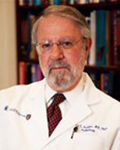 Jeffrey E. Saffitz, MD, PhD, is Chairman of the Department of Pathology at Beth Israel Deaconess Medical Center and Mallinckrodt Professor of Pathology at Harvard Medical School. The Department of Pathology comprises a large clinical component, involving both Anatomic and Clinical Pathology. In addition, the Department has a strong research component with investigators located in the Center for Vascular Biology Research and the Center for Life Sciences Building. Investigators have varied interests, including the molecular and cellular mechanisms that are involved in tumor progression, angiogenesis, inflammation, and neuronal and cardiac muscle cell physiology. Ongoing studies are elucidating the molecular mechanisms that regulate the survival, migration, invasion, metastasis, and apoptosis of tumor cells, stromal fibroblasts, endothelial cells and immune cells within the tumor microenvironment. Dr. Saffitz's research is focused on cell-cell communication via gap junctions in the heart.
Jeffrey E. Saffitz, MD, PhD, is Chairman of the Department of Pathology at Beth Israel Deaconess Medical Center and Mallinckrodt Professor of Pathology at Harvard Medical School. The Department of Pathology comprises a large clinical component, involving both Anatomic and Clinical Pathology. In addition, the Department has a strong research component with investigators located in the Center for Vascular Biology Research and the Center for Life Sciences Building. Investigators have varied interests, including the molecular and cellular mechanisms that are involved in tumor progression, angiogenesis, inflammation, and neuronal and cardiac muscle cell physiology. Ongoing studies are elucidating the molecular mechanisms that regulate the survival, migration, invasion, metastasis, and apoptosis of tumor cells, stromal fibroblasts, endothelial cells and immune cells within the tumor microenvironment. Dr. Saffitz's research is focused on cell-cell communication via gap junctions in the heart.
 Gyongyi Szabo, MD, PhD, FAASLD, AGAF, FACP, is the Chief Academic Officer for the BIDMC, and Professor and Faculty Dean for Academic Affairs at Harvard Medical School. She is responsible for oversight of research and education enterprise at BIDMC and BILH. Dr. Szabo’s research and clinical interests include innate immunity of the liver and the gut-liver axis. Her translational and clinical investigations focus on alcoholic hepatitis, non-alcoholic fatty liver disease and viral hepatitis and have recently revealed the importance of micro-RNAs and extracellular vesicles in liver diseases. Her laboratory studies the cellular and molecular mechanisms of inflammation and innate immunity in liver injury to identify therapeutic targets for future therapies.
Gyongyi Szabo, MD, PhD, FAASLD, AGAF, FACP, is the Chief Academic Officer for the BIDMC, and Professor and Faculty Dean for Academic Affairs at Harvard Medical School. She is responsible for oversight of research and education enterprise at BIDMC and BILH. Dr. Szabo’s research and clinical interests include innate immunity of the liver and the gut-liver axis. Her translational and clinical investigations focus on alcoholic hepatitis, non-alcoholic fatty liver disease and viral hepatitis and have recently revealed the importance of micro-RNAs and extracellular vesicles in liver diseases. Her laboratory studies the cellular and molecular mechanisms of inflammation and innate immunity in liver injury to identify therapeutic targets for future therapies.
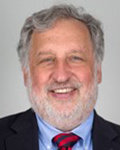 Richard E. Wolfe, MD, is Chief of Emergency Medicine at Beth Israel Deaconess Medical Center and Associate Professor of Medicine at Harvard Medical School. An active clinician and teacher, Dr. Wolfe was previously director of the residency in emergency medicine at Brigham and Women's Hospital and served as chair of the Education Committee for the American College of Emergency Physicians. He is currently a member of the
Richard E. Wolfe, MD, is Chief of Emergency Medicine at Beth Israel Deaconess Medical Center and Associate Professor of Medicine at Harvard Medical School. An active clinician and teacher, Dr. Wolfe was previously director of the residency in emergency medicine at Brigham and Women's Hospital and served as chair of the Education Committee for the American College of Emergency Physicians. He is currently a member of the
Emergency Medicine Connections task force. The Emergency Medicine Department at BIDMC currently supports a strong basic and translational research program in sepsis and endothelial dysfunction at the Center for Vascular Biology Research. Dr. Wolfe's research interests include ultrasound applications in emergency medicine, use of the laboratory in the evaluation of sepsis, and education and structure in postgraduate emergency medicine training.
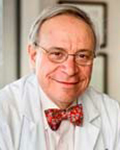 Mark L. Zeidel, MD, is Physician-in-Chief and Chairman of the Department of Medicine at Beth Israel Deaconess Medical Center and Herrman Ludwig Blumgart Professor of Medicine at Harvard Medical School. There are 24 Divisions in the Department of Medicine, 11 involving clinical and research activities and 13 that are research-based. The Center for Vascular Biology Research is represented by Principle Investigators from the Divisions of Cardiology, Molecular and Vascular Medicine, Pulmonary Medicine, Nephrology, and Gastroenterology. The Department is recognized nationally for the excellence of its faculty and the magnitude and breadth of its research productivity. In fiscal year 2006, the Department had externally funded research of over $147 million, placing it among the ten best funded Medical School Departments of Medicine in the country. Dr. Zeidel's research interests include epithelial biology and water transport.
Mark L. Zeidel, MD, is Physician-in-Chief and Chairman of the Department of Medicine at Beth Israel Deaconess Medical Center and Herrman Ludwig Blumgart Professor of Medicine at Harvard Medical School. There are 24 Divisions in the Department of Medicine, 11 involving clinical and research activities and 13 that are research-based. The Center for Vascular Biology Research is represented by Principle Investigators from the Divisions of Cardiology, Molecular and Vascular Medicine, Pulmonary Medicine, Nephrology, and Gastroenterology. The Department is recognized nationally for the excellence of its faculty and the magnitude and breadth of its research productivity. In fiscal year 2006, the Department had externally funded research of over $147 million, placing it among the ten best funded Medical School Departments of Medicine in the country. Dr. Zeidel's research interests include epithelial biology and water transport.
Steering Committee
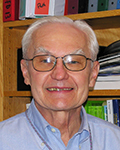 Harold F. Dvorak, MD: Dr. Harold Dvorak served as the founding Director of the CVBR, which was formed in 2004 as part of a strategic plan to establish interdisciplinary centers of excellence at Beth Israel Deaconess Medical Center. Dr. Dvorak is internationally recognized for his discovery of the protein now known as Vascular Endothelial Growth Factor (VEGF). This discovery led to the blossoming of numerous areas of vascular biology research, which are still yielding promising advances in the treatment of such illnesses as age-related macular degeneration, cancer and heart disease. The most significant of these to date, is the FDA's approval of the anti-angiogenesis drug, Avastin to treat patients with advanced cancer.
Harold F. Dvorak, MD: Dr. Harold Dvorak served as the founding Director of the CVBR, which was formed in 2004 as part of a strategic plan to establish interdisciplinary centers of excellence at Beth Israel Deaconess Medical Center. Dr. Dvorak is internationally recognized for his discovery of the protein now known as Vascular Endothelial Growth Factor (VEGF). This discovery led to the blossoming of numerous areas of vascular biology research, which are still yielding promising advances in the treatment of such illnesses as age-related macular degeneration, cancer and heart disease. The most significant of these to date, is the FDA's approval of the anti-angiogenesis drug, Avastin to treat patients with advanced cancer.
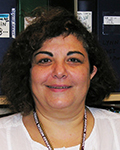 Christiane Ferran, MD, PhD: Dr. Ferran is the Thomas Lewis Professor of Surgery at Harvard medical School. She holds a dual appointment in the Division of Vascular and Endovascular Surgery, Department of Surgery, and the Division of Nephrology, Department of Medicine, at the BIDMC. She also serves as the co-Director of the Harvard Longwood Training Grant in Vascular Surgery, and is an active member of the Transplant Institute at BIDMC. Dr. Ferran's ongoing research focuses on uncovering the multiple functions of the versatile anti-inflammatory gene A20, and in particular its atheroprotective, hepatoprotective and anti-diabetic effects. Currently, a special emphasis is placed on translational studies aimed at ushering A20-based therapies to the clinic.
Christiane Ferran, MD, PhD: Dr. Ferran is the Thomas Lewis Professor of Surgery at Harvard medical School. She holds a dual appointment in the Division of Vascular and Endovascular Surgery, Department of Surgery, and the Division of Nephrology, Department of Medicine, at the BIDMC. She also serves as the co-Director of the Harvard Longwood Training Grant in Vascular Surgery, and is an active member of the Transplant Institute at BIDMC. Dr. Ferran's ongoing research focuses on uncovering the multiple functions of the versatile anti-inflammatory gene A20, and in particular its atheroprotective, hepatoprotective and anti-diabetic effects. Currently, a special emphasis is placed on translational studies aimed at ushering A20-based therapies to the clinic.
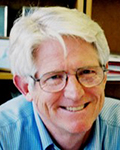 Jack Lawler, PhD: Dr. Lawler is Professor of Pathology at Harvard Medical School and Vice-Chair for Research in the Department of Pathology at the BIDMC. He also serves as Co-Director of the Training Grant in Angiogenesis and Inflammation and is the Leader of the Angiogenesis, Invasion and Metastasis Discipline-based Working Group of the Dana Farber/Harvard Cancer Center. Dr. Lawler's current research focuses on the anti-angiogenic activity of the thrombospondins with the goal of developing a novel therapeutic for the treatment of epithelial ovarian cancer.
Jack Lawler, PhD: Dr. Lawler is Professor of Pathology at Harvard Medical School and Vice-Chair for Research in the Department of Pathology at the BIDMC. He also serves as Co-Director of the Training Grant in Angiogenesis and Inflammation and is the Leader of the Angiogenesis, Invasion and Metastasis Discipline-based Working Group of the Dana Farber/Harvard Cancer Center. Dr. Lawler's current research focuses on the anti-angiogenic activity of the thrombospondins with the goal of developing a novel therapeutic for the treatment of epithelial ovarian cancer.
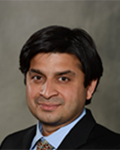 Ramaswamy Krishnan, PhD: Dr. Krishnan is Assistant Professor of Emergency Medicine at Harvard Medical School and a Research Scientist in the Department of Emergency Medicine at BIDMC. His current research focuses on the role of mechanical forces in the pathogenesis of asthma and vascular leak. A second focus of research in his laboratory is cell mechanics, as it pertains to (patho)physiological regulation of the liver, kidney, and heart.
Ramaswamy Krishnan, PhD: Dr. Krishnan is Assistant Professor of Emergency Medicine at Harvard Medical School and a Research Scientist in the Department of Emergency Medicine at BIDMC. His current research focuses on the role of mechanical forces in the pathogenesis of asthma and vascular leak. A second focus of research in his laboratory is cell mechanics, as it pertains to (patho)physiological regulation of the liver, kidney, and heart.
Administrative Support
Lydia Moss: Lydia Moss is the administrative assistant at the CVBR. She studied Psychology at Boston University and graduated in 2016.
Email Lydia Moss.
